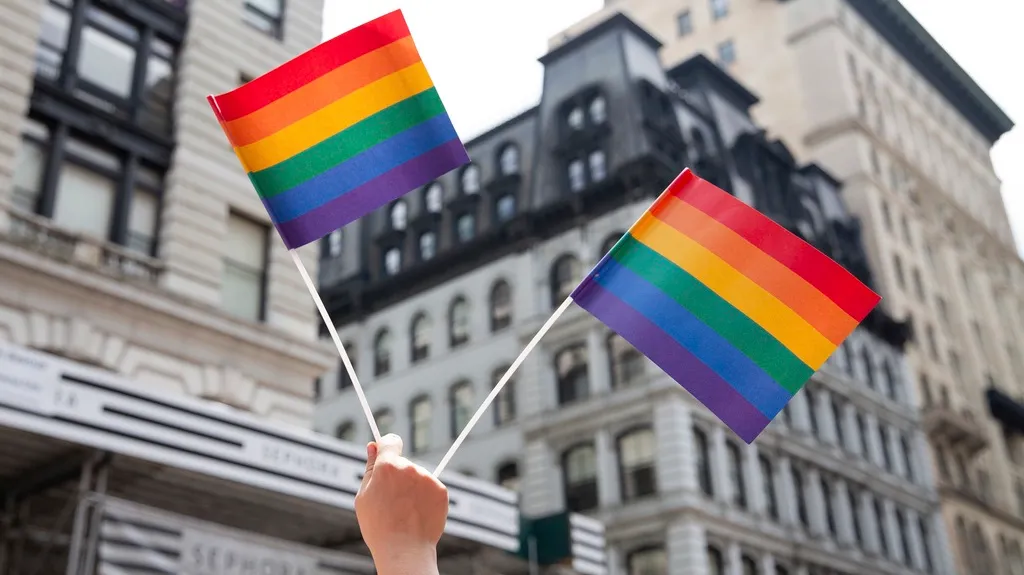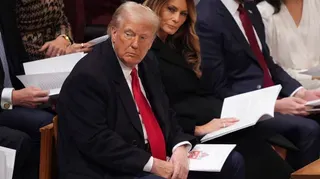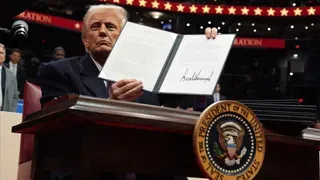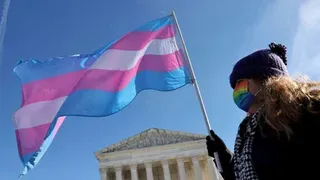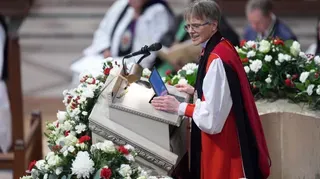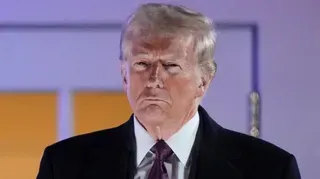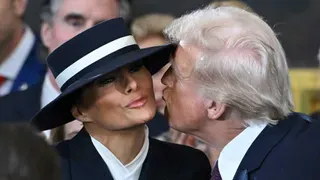December 10, 2024
Village People in Standoff Over 'Y.M.C.A.' Being a Queer Anthem
Robert Nesti READ TIME: 10 MIN.
That Willis and some of the group's personnel are straight has never been in question. But also what shouldn't be in question is the group's bona fide gay roots. When they became overnight sensations in the late 1970s, only to all but vanish in a few years, they were seen as something of an inside joke with songs and an act filled with queer Easter eggs that went over the heads of straight audiences who danced to their songs as they toured the world – before they culturally dumped disco by symbolically making public displays of disco record burning, that is, most famously at a DJ-inspired stunt at Chicago's Comisky Park in July, 1979 that developed into a full-scale riot. Steve Dahl, the DJ, later claimed his hatred of disco had nothing to do with gay culture. Rolling Stone critic Dave Marsh, who attended the promotion, wrote at the time, "Your most paranoid fantasy about where the ethnic cleansing of the rock radio could ultimately lead... White males, eighteen to thirty-four are the most likely to see Disco as the product of homosexuals, blacks and Latins, and therefore they're the most likely to respond to appeals to wipe out such threats to their security." In and of itself, that suggests a knee-jerk response to the fact that disco culture came from the Black and gay subcultures, something that needed to be symbolically eradicated with such public displays.
Not that Willis wants to deny the gay influences on the group – in fact, he appears to welcome that queer culture wants to keep "Y.M.C.A." as an anthem. He just doesn't want it labeled as a "gay anthem" to the world. In some ways, he appears caught in the conundrum as to whether or not he can wash the gay right out of the song.
What initiated the latest debate is the song's reappearance in 2020 as part of Donald Trump's presidential campaign, where it was routinely played along with another of the group's biggest hits, "Macho Man." When Willis received numerous complaints from his fans about its usage by Trump, he asked it not be used, but couldn't deny its legal use because the Trump campaign had purchased it. This year, the Trump campaign returned to using it, making it a centerpiece at rallies where Trump often danced along. This renewed interest put the song back on the charts, where it topped Billboard's Top Dance/Electronic Digital Song Sales for two weeks in a row after nearly half a century, and put money into Willis' pocket.
Robert Nesti can be reached at [email protected].
